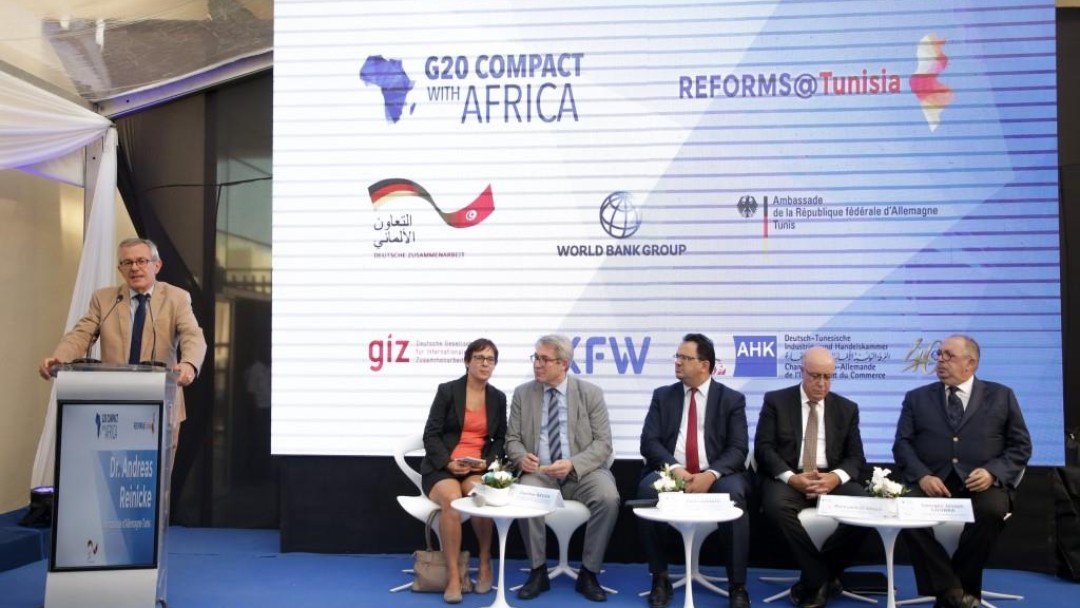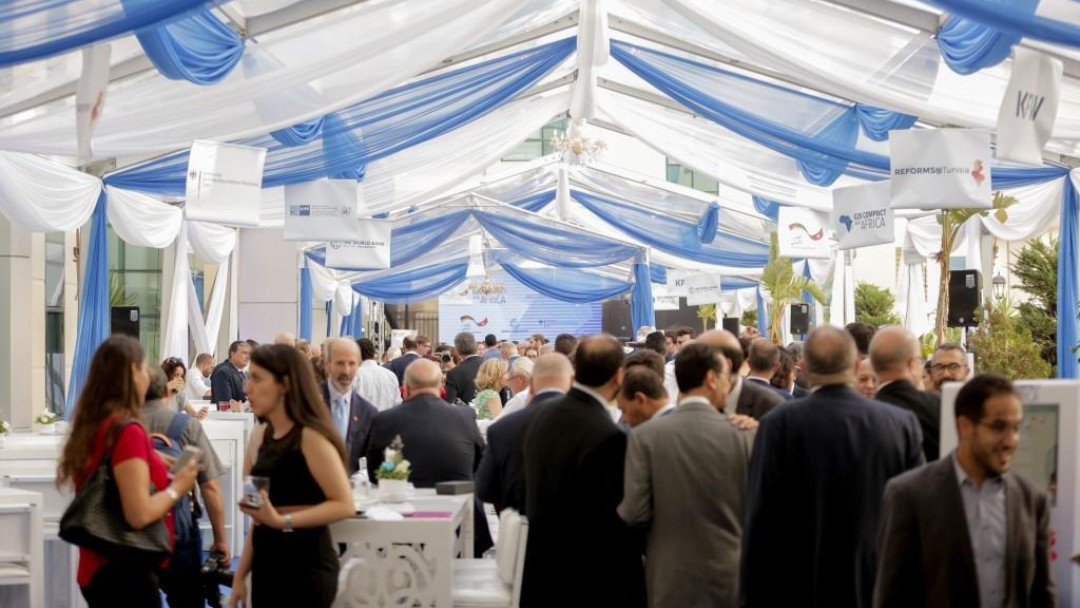News from 2019-09-24 / KfW Development Bank
Reform Partnership Festival
Compact with Africa. Reforms@Tunisia

A Reform Partnership Festival was held in Tunis on 19 September in the courtyard shared by KfW, GIZ and the World Bank Group. The event was hosted by the German Embassy, KfW Development Bank, Gesellschaft für Technische Zusammenarbeit (GIZ), the Tunisian-German Chamber of Industry and Commerce and the World Bank Group.
Background: Africa has been the focus of German foreign policy for quite some time now. The German Federal Government is committed in a variety of ways to supporting the neighbouring continent of Africa as it takes on responsibility for its own security and development. The Federal Ministry for Economic Cooperation and Development (BMZ) is giving the Compact-With-Africa initiative agreed during the German G20 Presidency in 2017 a concrete form with substantial commitments at bilateral level in a “Marshall Plan with Africa”. At the heart of the initiative are the reform partnerships with currently six countries. As early as 2017, BMZ concluded partnerships with Côte d'Ivoire, Ghana and Tunisia, followed by Ethiopia, Senegal and Morocco. In return for the funding commitments, the countries have committed to ambitious reform agendas aimed at improving the investment climate for both African and European companies. Central to cooperation: close political dialogue and mutual partnership commitments. African reform efforts are flanked by targeted support that complements the partners' own contributions.
Tunisia has reformed and expanded its anti-corruption agency so that more suspected cases can be investigated. The state credit guarantee fund was also reformed so that banks can also finance small and medium-sized enterprises and start-ups. The Ambassador for Germany in Tunisia, Dr Andreas Reinicke, said about the reform partnership with Tunisia: “We are proud to contribute to this positive development of the country. We are very confident that Tunisia will also be successful thanks to the dedication of the relevant ministries and the central bank.”

Germany is an important bilateral partner of Tunisia in development cooperation. Cooperation priorities are sustainable economic development, modernisation of public administration, water and energy. Promoting jobs is a cross-cutting theme in all priority areas. This is important for rural areas where unemployment rates are particularly high.
The Reform Partnership Festival met with great interest from representatives of the Tunisian government, the private sector and international donors: 300 visitors attended and exchanged views on concrete reform steps and existing challenges. In a panel discussion, Tunisian Development Minister Zied Laadhari, reform mentor and BMZ department head Gunther Beger, IFC representative in Tunisia Georges Joseph Ghorra, and Tunisian central bank governor Marouane Abassi discussed the issue.

Share page
To share the content of this page with your network, click on one of the icons below.
Note on data protection: When you share content, your personal data is transferred to the selected network.
Data protection
Alternatively, you can also copy the short link: https://www.kfw-entwicklungsbank.de/s/enzBWrMC.CE6A
Copy link Link copied